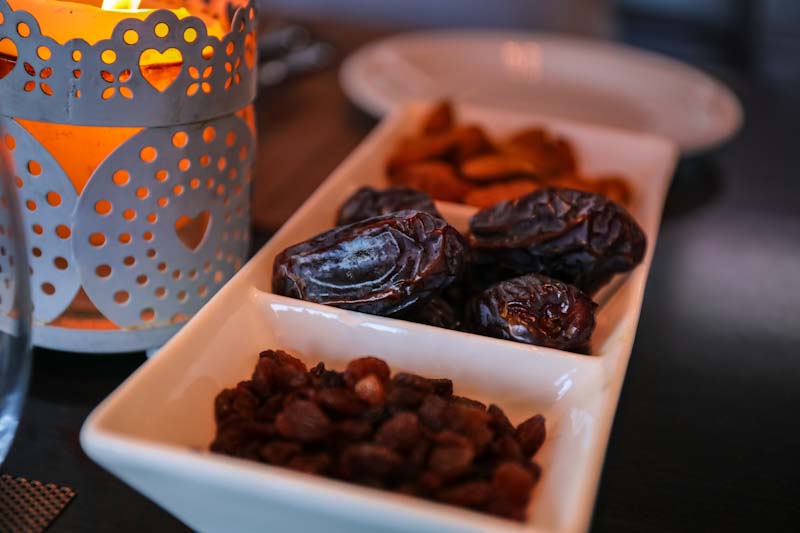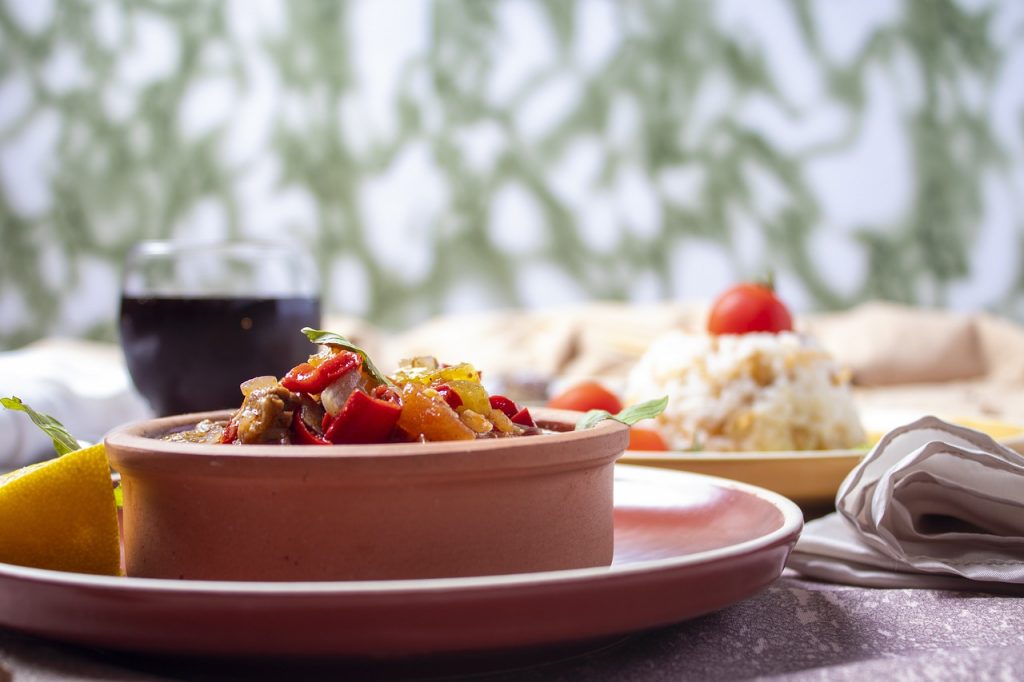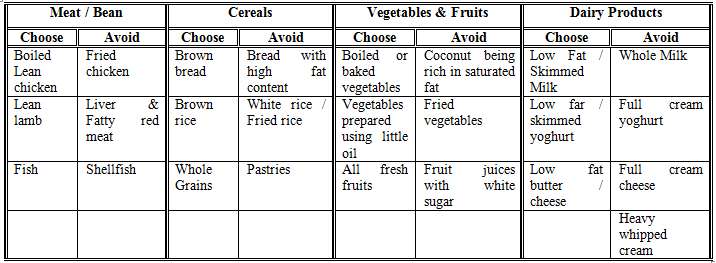Ramadan – the ninth month in the Islamic lunar calendar – is also the month of reverence, sacrifice and giving, as it is the month when the Holy Quran was revealed to the Prophet Mohammed (PBUH). Muslims from all over the world observe fast during this whole month, which includes completely abstaining from eating, drinking and indulging in any kind of sensual pleasures from dawn to sunset. Known as sawm in Arabic, fasting is one of the five pillars of Islam. It helps believers to realize the pain of people who struggle with poverty and scarcity. This, alternatively, enables them to develop or strengthen their qualities of concern and compassion towards poor and needy.
Besides offering absolute tranquility of mind, many health benefits are associated with the observance of fasting during Ramadan. As per a major study put out by Annals of Nutrition Metabolism, fasting helps to curtail bad cholesterol and boost the level of good cholesterol, thereby minimizing the risk of heart-related diseases. Ramadan is a period of self-control means it can prove beneficial to overcome your serious addictions and cravings, from smoking to the over intake of chocolates or junk foods. Moreover, during fasting, when the typical process of using body glucose for energy runs out, the fats stored in your body is used for the same, which results in better metabolism and weight loss.
These benefits, however, are largely correlated to a proper, healthy diet. In other words, what you eat during non-fasting hours: Suhour (pre-dawn meal) and Iftar (meal taken after the sunset), will determine whether fasting can improve your health or not. So, here we give you a few helpful tips to stick on to a balanced food as well as a healthy fluid intake, which eventually purifies both your body and soul.
Simple Tips for Healthy Ramadan Fasting
1. Never skip suhour
Everyone knows the importance of breakfast and it’s even more significant when you’re fasting. Skipping suhour may give you some continuous sleep, but in effect, it will elongate your fasting hours and also lead to binging after iftar. Suhour is a staple meal that gives you enough energy and strength required to make fasting easier and healthier. However, make sure that you eat healthy by including whole grain foods like oatmeal, milk, fresh fruits, vegetables and nuts in this meal. This is further important to stabilize your blood sugar levels and remain active throughout the day.
2. Keep up with traditions while breaking the fast
 A healthy iftar is all about adhering to the traditions. Break your fast with two or three dates, which should be followed by a glass of water. Speaking of Iftar meal, it’s always recommended to start with a cup of warm soup and a bowl of salads, as they are effective to reenergize your body. This should be followed by a correct diet enriched with the right amount of carbohydrates (complex carbohydrates), fiber and protein. To balance your body’s nutrition level, you can also take a light meal or snack after Tarawiah prayer, preferably with items like whole wheat bread, dry fruits, or a low fat fruit smoothie.
A healthy iftar is all about adhering to the traditions. Break your fast with two or three dates, which should be followed by a glass of water. Speaking of Iftar meal, it’s always recommended to start with a cup of warm soup and a bowl of salads, as they are effective to reenergize your body. This should be followed by a correct diet enriched with the right amount of carbohydrates (complex carbohydrates), fiber and protein. To balance your body’s nutrition level, you can also take a light meal or snack after Tarawiah prayer, preferably with items like whole wheat bread, dry fruits, or a low fat fruit smoothie.
3. Eat right during Ramadan
 While fried and greasy food might seem tempting as your break the fast in the evening, these food items can create difficulty for your next day’s fast. So, to fast in Ramadan by feeling good, it is important to eat a healthy meal. This indicates incorporating foods from all major groups in your Ramadan diet, such as Meat, Cereals, Vegetable and Fruits, and Dairy products. That said, not all food from these groups are healthy, and the table below will give you an idea of what to eat and not to eat during Ramadan.
While fried and greasy food might seem tempting as your break the fast in the evening, these food items can create difficulty for your next day’s fast. So, to fast in Ramadan by feeling good, it is important to eat a healthy meal. This indicates incorporating foods from all major groups in your Ramadan diet, such as Meat, Cereals, Vegetable and Fruits, and Dairy products. That said, not all food from these groups are healthy, and the table below will give you an idea of what to eat and not to eat during Ramadan.

Precisely, just equally important is to ensure that your Ramadan meals are cooked using right method.

4. Stick to the Prophet’s (PBUH) way of eating
According to Islam, your body is a gift from Allah (SWT) and should be given best care of it. And there is no better way to do it than by following the way the Prophet (PBUH) did, by satisfying hunger with one-third of food and one-third of fluid while leaving a third of space for air in the stomach. Whether fasting or not, eating moderately this way will not only prevent you from being lazy and inactive, but also protect you from several serious ailments.
5. Keep yourself well-hydrated and cool
 Make it a point to drink eight to ten glasses of water between Iftar and Suhour. This will minimize the chances of dehydration during fasting hours. If you’re not able to drink too much of water, an alternative is to increase the intake of hydrating fruits and vegetables like watermelon, orange, tender coconut water, cucumber etc. To stay healthy, it is further important to lower the intake of caffeinated drinks and completely avoid frizzy drinks.
Make it a point to drink eight to ten glasses of water between Iftar and Suhour. This will minimize the chances of dehydration during fasting hours. If you’re not able to drink too much of water, an alternative is to increase the intake of hydrating fruits and vegetables like watermelon, orange, tender coconut water, cucumber etc. To stay healthy, it is further important to lower the intake of caffeinated drinks and completely avoid frizzy drinks.
6. Perform light exercise
Apart from a balanced meal, adding a light exercise in the form of walking for 10 to 15 minutes will help you to retain a healthy weight during Ramadan. On the other hand, if you’re a hardcore fitness enthusiast accustomed to highly active workouts, you can still perform them by adjusting your exercise regime after iftar. But what’s more important is to keep yourself well hydrated after every workout session.
7. Consult a physician
Despite the immense benefits of fasting, it is always advisable to consult an expert medical practitioner and ensure that you’re physically fit to fast. This is particularly important if you’re diabetic, pregnant, or suffering from any kind of diseases.
Conclusion
With these tips, we hope that you would improve yourselves both spiritually and physically, while taking the lessons derived from fasting – mainly patience, modesty, and most of all, healthy dietary habits – beyond the month of Ramadan.




